At some point in the middle of this year, I began worrying that my education was wearing off. Not that I was getting stupider, exactly, but that in the years-long absence of coursework, my reading was becoming less rigorous and my choices more predictable, too much in thrall to whatever was on the literary radar.
At the same time, I began experiencing serious anxiety for the first time in my life. I know what you might be thinking: These things are probably not unrelated. Indeed, I generally began to visualize lots of worst-case scenarios, hoping, I guess, that I’d be allowed to prepare for them if I was smart enough to imagine them.
One preparation (this, for death; no big deal) has been to download an app called WeCroak, which periodically sends me a push alert that says “Don’t forget, you’re going to die” and then encourages me to click into the app to get a melancholy quote. The quotes can be wishy-washy, but they’re often quite good; the best one so far was from a Muriel Spark novel called Memento Mori—which I also happened to read this year—in which a mysterious stranger keeps calling up London’s elderly and telling them, “Remember, you must die.”
The app’s full quote speaks to my desire to anticipate problems early and often: “It is difficult for people of advanced years to start remembering they must die. It is best to form the habit while young.”
This would be grim, except that it’s true. Remembering the inevitability of death a little bit every day instead of all at once, at the end, seems to take the pressure off. And similarly, reading with greater variety all through the year helps me feel less dumb at Christmas.


 In pursuit of this, I’ve been reaching for writers like Spark, like Iris Murdoch, like Joy Williams and Karen Tei Yamashita, who invite the bizarre and the morbid into their work with a welcoming hand. While traveling in France, I read two Murdoch novels: A Severed Head and The Bell, both of which made me laugh out loud on the train, while simultaneously giving me an existential stomach ache. They are the ordinary world, stitched through with dark thread; reality, slapped on the stinging ass. Karen Tei Yamashita’s Tropic of Orange seems to tilt the other way, depicting a world boiling over with pestilence, through which a joyful note nonetheless continues to sound.
In pursuit of this, I’ve been reaching for writers like Spark, like Iris Murdoch, like Joy Williams and Karen Tei Yamashita, who invite the bizarre and the morbid into their work with a welcoming hand. While traveling in France, I read two Murdoch novels: A Severed Head and The Bell, both of which made me laugh out loud on the train, while simultaneously giving me an existential stomach ache. They are the ordinary world, stitched through with dark thread; reality, slapped on the stinging ass. Karen Tei Yamashita’s Tropic of Orange seems to tilt the other way, depicting a world boiling over with pestilence, through which a joyful note nonetheless continues to sound.
 As for Joy Williams, I read The Quick and the Dead in a series of bubble baths in the month when I was recovering from surgery, and I wouldn’t mind doing so every year, even if it meant an annual slice of the knife. (I’m almost being sincere about this. Joy Williams is a flavor that pairs well with trauma.)
As for Joy Williams, I read The Quick and the Dead in a series of bubble baths in the month when I was recovering from surgery, and I wouldn’t mind doing so every year, even if it meant an annual slice of the knife. (I’m almost being sincere about this. Joy Williams is a flavor that pairs well with trauma.)



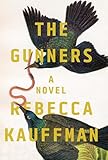



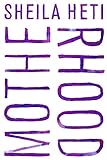 I had a book come out this year, too—which might account for the anxiety—and as a result I couldn’t help also reading a bunch of new work; not only because the writers belonged to my publishing cohort (if you will) (will you?), but also because they were exciting and excellent. Rachel Lyon’s Self-Portrait with Boy, Danielle Lazarin’s collection Back Talk, R.O. Kwon’s The Incendiaries, Rebecca Kauffman’s The Gunners, Alice Hatcher’s The Wonder That Was Ours (which uses collective consciousness in a way I’ve never seen before), Laura van den Berg’s outstanding, protracted fever dream The Third Hotel. Back-to-back, I read Meaghan O’Connell’s And Now We Have Everything and Sheila Heti’s Motherhood, and the fact that I have not yet reconciled my own conflicting desires in the arena of procreation can, at least, not be blamed on them.
I had a book come out this year, too—which might account for the anxiety—and as a result I couldn’t help also reading a bunch of new work; not only because the writers belonged to my publishing cohort (if you will) (will you?), but also because they were exciting and excellent. Rachel Lyon’s Self-Portrait with Boy, Danielle Lazarin’s collection Back Talk, R.O. Kwon’s The Incendiaries, Rebecca Kauffman’s The Gunners, Alice Hatcher’s The Wonder That Was Ours (which uses collective consciousness in a way I’ve never seen before), Laura van den Berg’s outstanding, protracted fever dream The Third Hotel. Back-to-back, I read Meaghan O’Connell’s And Now We Have Everything and Sheila Heti’s Motherhood, and the fact that I have not yet reconciled my own conflicting desires in the arena of procreation can, at least, not be blamed on them.

 Speaking of nonfiction, Chelsea Hodson’s Tonight I’m Someone Else is a collection of essays that engages so openly—lovingly, pugnaciously—with its own ideas that it filled me with professional envy. You can be metatextual with an essay in a way that’s not so easy in fiction, taking a concept and interrogating the fact that it occurred to you, without sounding obnoxious or twee. A fictional narrator can theoretically do the same, but because that narrator is invented, there’s always an added layer of ironic remove between them and the reader. Shelley Jackson’s novel Riddance perhaps comes close to bridging the gap, forcing its ideas about ghosts, mortality, and the nature of inquiry through the sieve of the body and all of its orifices. It perseveres, framing and re-framing its question through the mouth, through the voice, through the ear, through the land of the dead and the concept of child endangerment. It’s pretty wild.
Speaking of nonfiction, Chelsea Hodson’s Tonight I’m Someone Else is a collection of essays that engages so openly—lovingly, pugnaciously—with its own ideas that it filled me with professional envy. You can be metatextual with an essay in a way that’s not so easy in fiction, taking a concept and interrogating the fact that it occurred to you, without sounding obnoxious or twee. A fictional narrator can theoretically do the same, but because that narrator is invented, there’s always an added layer of ironic remove between them and the reader. Shelley Jackson’s novel Riddance perhaps comes close to bridging the gap, forcing its ideas about ghosts, mortality, and the nature of inquiry through the sieve of the body and all of its orifices. It perseveres, framing and re-framing its question through the mouth, through the voice, through the ear, through the land of the dead and the concept of child endangerment. It’s pretty wild.

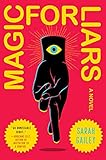

 Moving on: Books I’ve loved this year that actually come out next year include Erika Swyler’s Light from Other Stars, which gave me the same feeling I had at 11 or 12, watching Contact for the first time: an un-cynical joy and wonder; Magic for Liars by Sarah Gailey, which was rightly pitched as Veronica Mars at a school for magicians (!); Kat Howard’s collection Cathedral of Myth and Bone, which guided me through stressful periods in the fall with the nudging reminder that the fantastic is in our DNA, in stories if not in actual fact; and Women Talking by Miriam Toews, which is searing, cunning, redemptive, perfect.
Moving on: Books I’ve loved this year that actually come out next year include Erika Swyler’s Light from Other Stars, which gave me the same feeling I had at 11 or 12, watching Contact for the first time: an un-cynical joy and wonder; Magic for Liars by Sarah Gailey, which was rightly pitched as Veronica Mars at a school for magicians (!); Kat Howard’s collection Cathedral of Myth and Bone, which guided me through stressful periods in the fall with the nudging reminder that the fantastic is in our DNA, in stories if not in actual fact; and Women Talking by Miriam Toews, which is searing, cunning, redemptive, perfect.



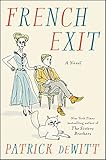
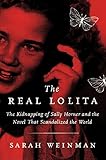
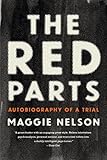 I’m a bit stunned that, given our current cultural penchant for autofiction (see: Rachel Cusk’s Kudos and Sigrid Nunez’s The Friend, both of which I read and adored) more Americans didn’t read the 2017 translation of Delphine de Vigan’s Based on a True Story, which is spooky and intimate, not to mention clever as hell. French Exit by Patrick deWitt is like contemporary P.G. Wodehouse except sadder and with better swears (the fucked witch!). The Real Lolita by Sarah Weinman is a book of ideas (what does it mean to shape the narrative of your ambition? What do you owe to your sources of inspiration? Was Nabokov a dick?) and a thrilling true crime story. The Red Parts by Maggie Nelson is about murder, and it made me feel dark and content at a time when I was previously just feeling dark. Daphne du Maurier will never bore me.
I’m a bit stunned that, given our current cultural penchant for autofiction (see: Rachel Cusk’s Kudos and Sigrid Nunez’s The Friend, both of which I read and adored) more Americans didn’t read the 2017 translation of Delphine de Vigan’s Based on a True Story, which is spooky and intimate, not to mention clever as hell. French Exit by Patrick deWitt is like contemporary P.G. Wodehouse except sadder and with better swears (the fucked witch!). The Real Lolita by Sarah Weinman is a book of ideas (what does it mean to shape the narrative of your ambition? What do you owe to your sources of inspiration? Was Nabokov a dick?) and a thrilling true crime story. The Red Parts by Maggie Nelson is about murder, and it made me feel dark and content at a time when I was previously just feeling dark. Daphne du Maurier will never bore me.
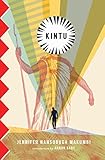 Finally, Kintu by Jennifer Nansubuga Makumbi was the first book I read this year, sitting on my couch with a yard of gauze in my ear, unable to turn my head. It tells the story of a curse that runs through generations of men and women, manifesting both subtly—bad choices, bad luck—and vibrantly—full-body possession!—as people just try to live their fucking lives. Many, many worst case scenarios, and yet it filled me up with hope.
Finally, Kintu by Jennifer Nansubuga Makumbi was the first book I read this year, sitting on my couch with a yard of gauze in my ear, unable to turn my head. It tells the story of a curse that runs through generations of men and women, manifesting both subtly—bad choices, bad luck—and vibrantly—full-body possession!—as people just try to live their fucking lives. Many, many worst case scenarios, and yet it filled me up with hope.
More from A Year in Reading 2018
Don’t miss: A Year in Reading 2017, 2016, 2015, 2014, 2013, 2012, 2011, 2010, 2009, 2008, 2007, 2006, 2005
The post A Year in Reading: Adrienne Celt appeared first on The Millions.
from The Millions https://ift.tt/2QK6o0U
Comments
Post a Comment